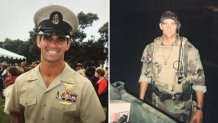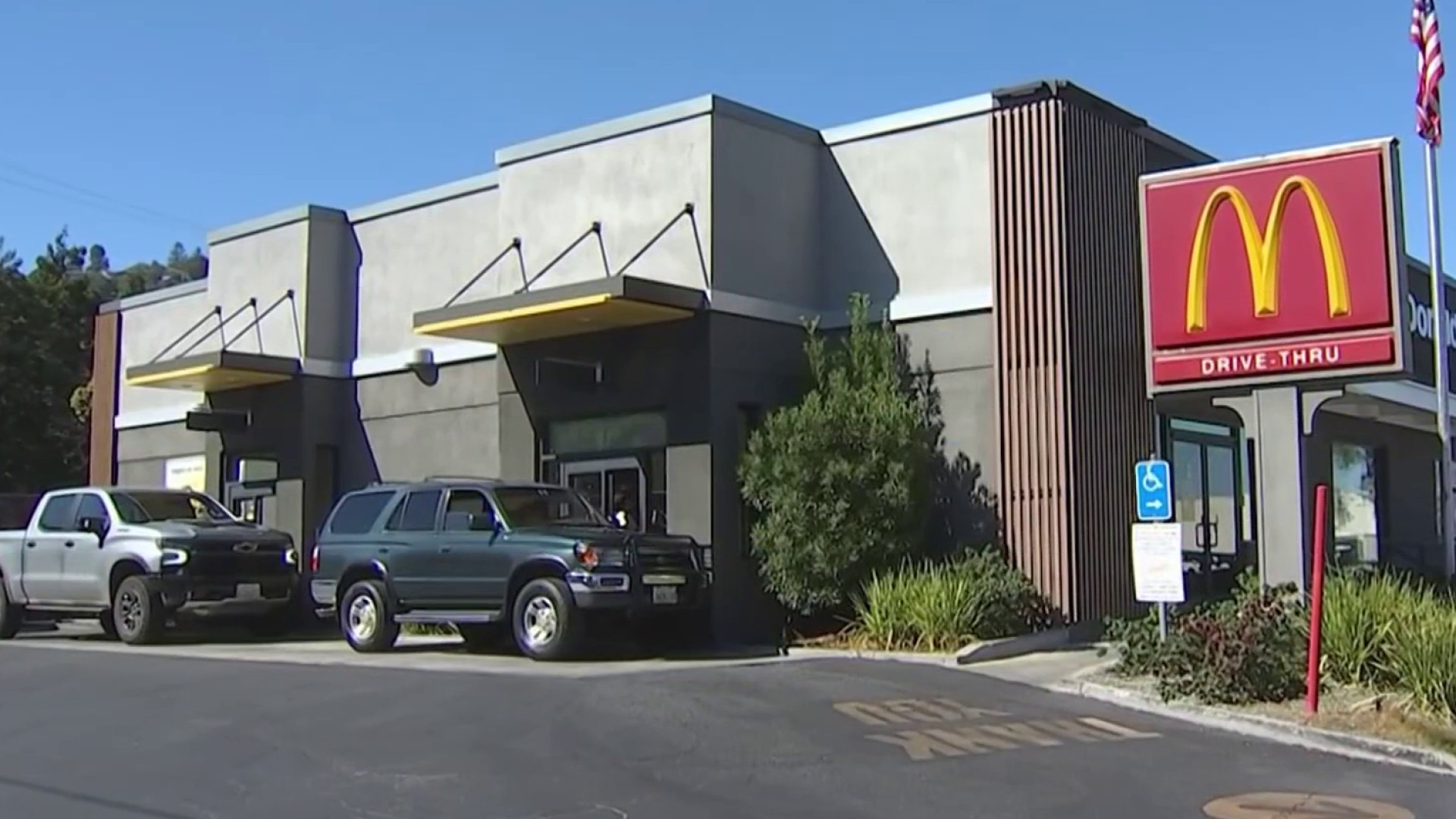Marcus Capone has trouble talking about 13 years of deadly combat tours he experienced as a U.S. Navy SEAL.
It left scars, both physical and mental, and resulted in his medical retirement.
“It seemed like every time I got back from a deployment it would get worse. I was just numb and cold and hard,” said Capone, a resident of Coronado, California. “I think that what affected me more was individuals that I served with, or I was really close with, that we lost in the war. Those were tough and are still tough.”
Capone thought he was ready to return to a normal life with his wife and two children, but he says he struggled to adapt — battling depression, anxiety, feelings of isolation, headaches and insomnia.
Get top local stories in Southern California delivered to you every morning. Sign up for NBC LA's News Headlines newsletter.
“I was keeping it all together through the many prescriptions I was being given by the doctor, psychologists and whoever else I was seeing,” he admitted.

He was diagnosed with post-traumatic stress disorder. At times, he says he was suicidal.
National Investigations
“I didn't care about anything … If I crash (my truck), great. Like, maybe I don't wake up and all this goes away,” Capone said.
Capone's wife, Amber, suggested he try psychedelic treatment outside the United States — where it’s legal. At first, he was not on board. “The first reaction was, 'This is nuts, this is crazy,'" he said.
But after reading up on it, he traveled to Mexico to try ibogaine. The drug is made from the root bark of a West African shrub and taking it causes intense hallucinations.
“You can't hide from the medicine. It’s going to reach down and it’s going to pull out everything that is affecting you. Some of that is really uncomfortable when you are talking to your dead dad or talking to your dead buddy,” Capone recalled.
But almost immediately, he says he felt a huge weight had been lifted. After years of frustration and hopelessness, he says he got his life back.
“You felt like your brain was rebooted like a new operating system," he said.
Capone's experience with the drug has led him to support Senate Bill 519, introduced by State Sen. Scott Wiener, a Democrat from San Francisco. It would give veterans access to psychedelic therapies, but it also decriminalizes several drugs like LSD, ecstasy, mescaline, psilocybin “magic mushrooms” and more.
Anyone 21 years of age or older would be able to keep a certain amount of each, as well as grow them or give them away to another adult. The bill would allow for their legal use and further research.
Other cities have already made changes. Denver became the first city to decriminalize psilocybin in May 2019. The California cities of Oakland and Santa Cruz followed.
SB-519 narrowly passed the State Senate and is now in the State Assembly. It could still get changed along the way to the governor’s desk.
Senator Brian Jones — a representative of the 38th Senate District, which encompasses a large portion of San Diego County — voted against SB-519.
“The Senate Bill goes way too far as far as decriminalizing psychedelic drugs and making them completely legal on the street. I can't support that,” he said.
But Jones says he does support the potential use of psychedelic treatment for military veterans.
“My dad is a veteran, my grandfather was a POW in World War II, he suffered PTSD. They didn't call it that then, but he had issues his entire life. I know that we need to treat that and find solutions to that,” he said.
Joseph Schuermeyer is a San Diego psychiatrist. He is more skeptical of psychedelic treatments for therapeutic purposes.
“We are still a long way from approving these interventions. There are risks that could be very harmful and we have to assess those risks with those benefits,” he said.
Schuermeyer doesn’t support either side of the bill, believing more data is needed. Just because drugs are considered “natural,” he says, doesn't make them safe.
“There can be risks with anything we put in our body. Moderation is important and there are natural substances that are highly toxic. There is frequent neurotoxicity with certain substances and that can have complications for various parts of the brain.”
David Bronner, the CEO of Dr. Bronner’s — a company that makes organic soap and personal care products — says his company fights for and financially supports causes he believes in: regenerative agriculture, fair trade, animal advocacy, industrial hemp and drug policy reform.
“It's life-saving medicine and we need to decriminalize it so people feel comfortable accessing the medicine,” he said.
His company donated $452,500 to the New Approach Political Action Committee — a group that lobbies not only for psychedelic legalization efforts but others like marijuana — in California, NBC 7 Investigates discovered.
“We look at money as energy, like we're just stewards. We want to deploy it in where we see real leverage points to really move things along in society,” Bronner said.
Bronner is also a board member of a group called Multidisciplinary Association for Psychedelic Studies, or MAPS. He says it’s his goal to legalize magic mushrooms and other psychedelics — something he says is exactly what his grandfather, who founded the company, would have done.
“It can just really help people get in there and just break self-destructive patterns of thought and behavior. We have veterans right now who are dying at the rate of 22 a day or taking their own lives,” explained Bronner.
Capone agrees.
“Why should individuals who go overseas for war come back here and not get the help they are looking for and then have to go back overseas outside the borders to get treated?” he said.
After his own life-changing experience with ibogaine, Capone and his wife started an organization called VETS — Veterans Exploring Treatment Solutions — which has paid for hundreds of veterans to seek psychedelic treatments where it’s legal.
“What Senate Bill 519 will do is to allow access to these medicines right here,” Capone said. He believes there is no better evidence on the benefits of the treatment than his own life story.
“I feel like I am back and I love that,” he said with a big smile.
If you or someone you know is at risk of suicide please call the U.S. National Suicide Prevention Lifeline at 800-273-8255, text TALK to 741741 or go to SpeakingOfSuicide.com/resources for additional resources.


